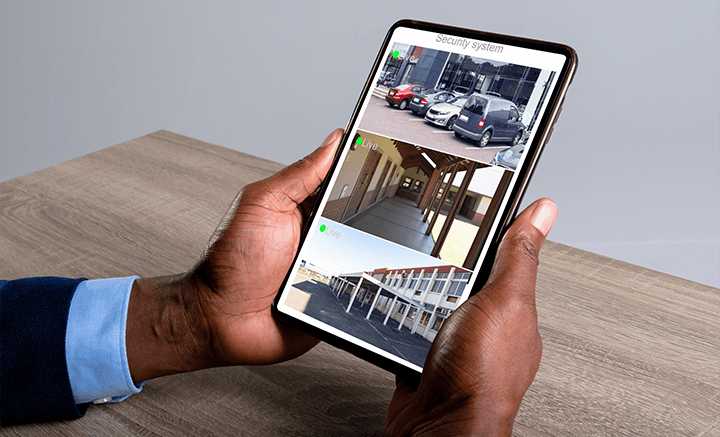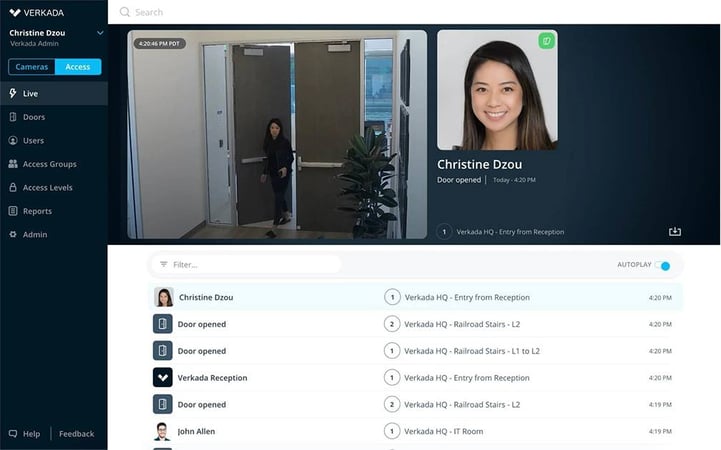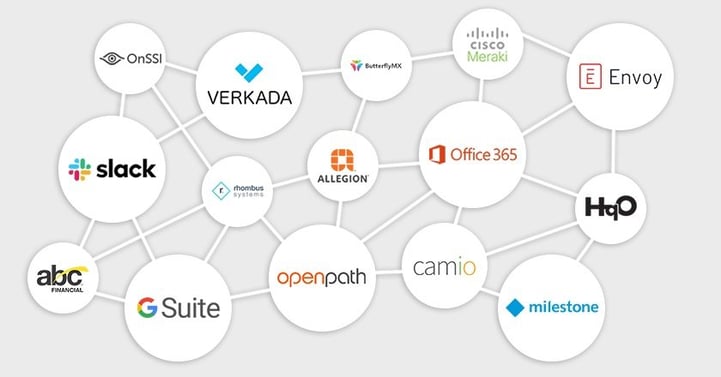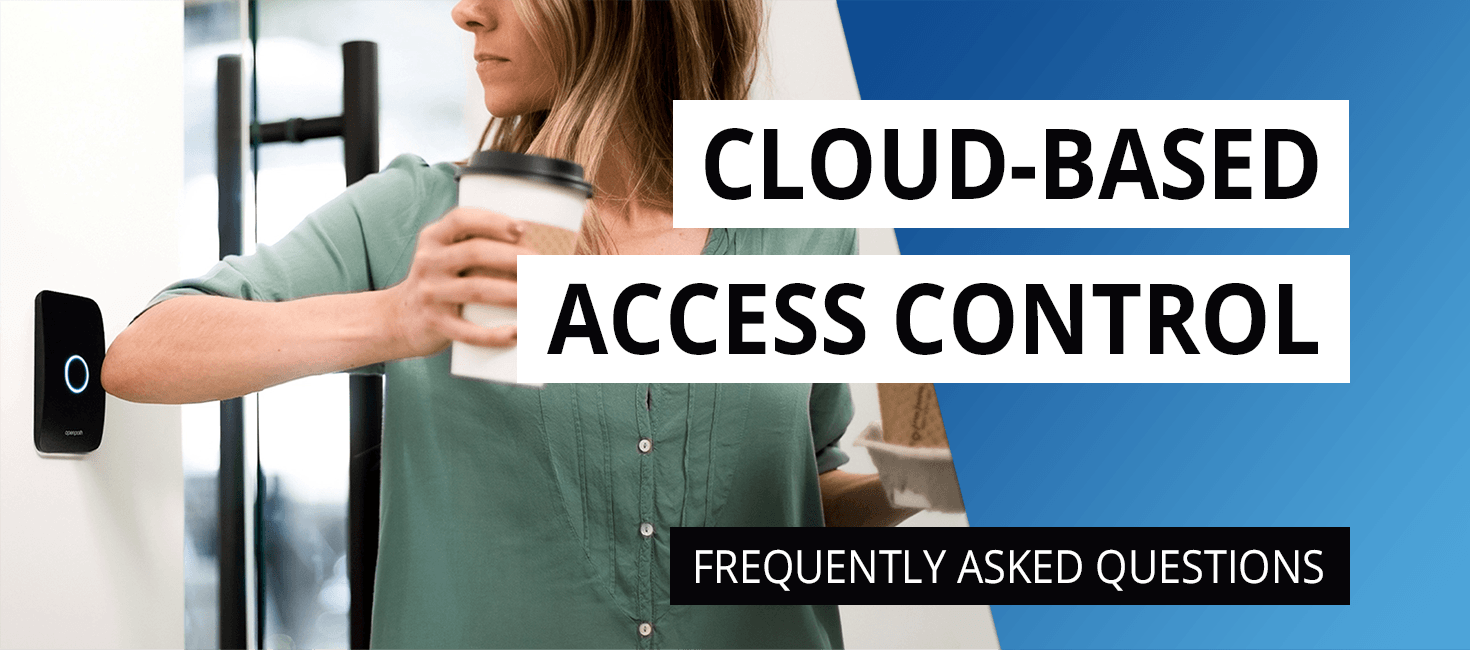The cloud is revolutionizing the way we handle and manage our data. Complex, expensive proprietary systems are being phased out in favor of agile, easy to use cloud-based platforms.
Your access control isn't far behind.
But, like all major shifts, you likely have questions surrounding cloud-based access control. What is it? Is it secure? What happens if….? We'll answer all these questions and more below. If you still have a question that we don't answer, let us know, and we'll add it to the list.
Quick Links
What is cloud-based access control?
What are the benefits of cloud-based access control?
Can I access/manage it from anywhere?
What happens if the internet goes down?
What happens if there is a power outage?
What if I have an existing access control system?
How secure is cloud-based access control?
Is cloud-based access control difficult to manage?
How scalable is cloud-based access control?
How many doors can cloud-based access control support?
Can a cloud-based system integrate with intercoms, speakers, and other platforms and systems?
How do I decide between on-premise or cloud-based security?
How expensive is cloud-based access control?
Is cloud-based access control a good solution considering COVID-19?
What is cloud-based access control?
Cloud-based access control lets you manage and access your system from anywhere. There's no large investment in hardware or expensive certifications. Instead, your data's hosted in off-premise data centers. Here’s a more detailed explanation of cloud-based access control.
What are the benefits of cloud-based access control?
The cloud gives organizations access to robust security solutions without expensive IT infrastructure or trained personnel. The systems are customizable, scalable, and cost-effective. Read more about the top 8 benefits of cloud-based access control.

Manage access control from your mobile device.
Can I access/manage it from anywhere?
Absolutely. One of the best features of the cloud is its accessibility and flexibility. You can access and manage your security system from anywhere on virtually any device. Grant temporary access for someone in your east coast office. Update the door schedule at your west coast office. Review activity logs whether you're at home, on the beach, or in the office.
What happens if the internet goes down?
You don't have to worry if your internet goes down. Door readers will still work and authenticate credentials. But the system won't update until it's back online. Most systems have a built-in memory that stores whitelists, permissions, user credentials, and activity records.
What happens if there is a power outage?
A properly designed access control system will continue to work even if the power goes out. It should rely on an uninterruptible power supply (UPS), which ensures continuous operation.
Fail-safe and fail-secure locks will also help control the flow of people in the event that the power goes out.
What if I have an existing access control system?
Most cloud-based devices work with standard electrical wiring. This makes it easy to replace old readers and door controllers. Some systems even work with existing third-party cards and readers. Check with a consultant to ensure that your existing readers will be compatible before you transition to a new system.
of IT professionals believe the cloud is more secure than legacy systems.
How secure is cloud-based access control?
Clutch surveyed a group of IT enterprise professionals. 64% of them said cloud infrastructure is more secure than legacy systems. Here's why:
- Infrastructure is monitored at all times.
- Security measures are multi-faceted, implemented from the servers to the devices and software.
- Automatic updates ensure technology has the latest antivirus software, firewalls, security patches, etc.
- Most cloud service providers do annual audits to find and fix flaws. (When was the last time you audited your on-prem solution?)
(Related: Is the Cloud Secure?)
Is cloud-based access control difficult to manage?
No way. Cloud-based access control was created with the end-user in mind. Every facet, from device installation to platform management, is designed for simplicity.
Intuitive platforms are easy for admins to navigate. Automatic updates mean one less thing to worry about. Robust integrations can automate repetitive tasks and give you detailed insights. And remote access makes management easy and convenient.
You'll no longer need an on-site specialist or extensive training to manage your system.
From an internet browser, you can access the portal anywhere, on any device. Revoke credentials, change door schedules, view activity logs, and more.

Intuitive, user-friendly online platforms are easy to manage.
How scalable is cloud-based access control?
Very! From a single door to a large enterprise, cloud-based access control can adapt to your business's evolving needs. There's no expensive hardware, so you can add and remove devices for a reasonable price. This lack of hardware also makes rollouts and reconfigurations quicker and cheaper.
If you have multiple locations, a cloud-based system makes it easy to manage settings across your enterprise. And you'll only need one keycard/app wherever you go, creating a much nicer end-user experience.
How many doors can cloud-based access control support?
The exact number will depend on the vendor you select. Still, most can handle thousands– or unlimited numbers– of doors across multiple locations. Since these plans are subscription-based, you’ll only pay for the doors you need.

Integrate with your most important platforms.
Can a cloud-based system integrate with intercoms, speakers, and other platforms and systems?
Many on-premise solutions come with proprietary software that makes integrations expensive and complicated. Luckily, most cloud-based systems come with out-of-the-box integrations to popular platforms. If there isn't an existing integration, most systems have an open API. This makes it easy to connect your IoT devices, video management systems, and analytic platforms.
Of course, integration options will vary by vendor. Create a list of must-have integrations and let that guide your system selection.
How do I decide between on-premise or cloud-based security?
The right access control solution will depend on your requirements. To identify what you need from an access control system, you should:
- Audit your current security plan.
- Identify strengths and weaknesses.
- Make a list of necessary features and integrations.
- Make a list of desired features and integrations.
- Consider company growth over the coming years.
- Ask for feedback from a security consultant.
Those answers should guide your selection. Here are some additional points to consider for each setup. Remember, if you need a mix of the two, a hybrid solution is always an option.
On-Premise Access Control
Licensing-based pricing (Support and updates may have additional fees)
Keeps data and information on-site
Up to you to secure and protect servers
Need internal resources, like an IT team, to manage the system
Higher upfront cost for hardware
Infinitely customizable (for a price)
Your incontrol of meeting compliance and regulatory standards
Cloud-Based Access Control
Subscription-based pricing (Generally includes updates and support)
Minimal maintenance required on your side
Quick to rollout and implement
Servers are in data centers monitored around the clock by professionals
Flexible and scalable
Out-of-the-box integrations and an open API
Most cloud-based platforms meet compliance standards - but if they don't, there's little you can do
How expensive is cloud-based access control?
Cloud-based access control eliminates some of the costs you'd incur with traditional physical security, like:
- Pricey hardware
- Always making/buying keys and keycards
- Expenses associated with running and maintaining servers
- Overpriced training for personnel
Instead, you pay for a subscription to the cloud service, the card readers, and door openers. Most cloud subscriptions include server updates, maintenance, repairs, and upkeep.
Eliminating costly hardware in favor of a scalable subscription-based model saves you money.
Want more detailed pricing information? Check out our Workplace Technology Budget Calculator to estimate how much your next security project will cost.
Is cloud-based access control a good solution considering COVID-19?
Workplaces are prime opportunities for viruses like COVID-19 to spread. Access control can help you monitor and control that flow of people to minimize the spread of germs. Cloud-based systems offer a few more key benefits:
- Reducing common touchpoints - Hands-free access control solutions can enable you to unlock and open doors and ride in an elevator without touching anything.
- Wellness screening - Integrate temperature measurement and wellness forms and only give access to those who pass the screening.
- Enforce distancing - IoT sensors and AI platforms can identify hotspots, monitor social distancing, and control occupancy levels.
- Remote management - Manage and edit the system from the safety and comfort of a remote location (i.e., your couch or dining room table).
- Adaptability - A cloud-based access control system is agile and flexible. Ready to accommodate whatever 2021 brings.
Hopefully, this answered your questions about cloud-based access control. Remember, every organization is unique, and there is no one-size-fits-all solution. A security consultant can determine if a cloud-based, on-premise, or hybrid solution is best for you. They can also help you pick a vendor that aligns with your goals.
If you have any questions, want to discuss a project, or are looking to learn more, Contact Us below.
Contact Us


Leave a Comment